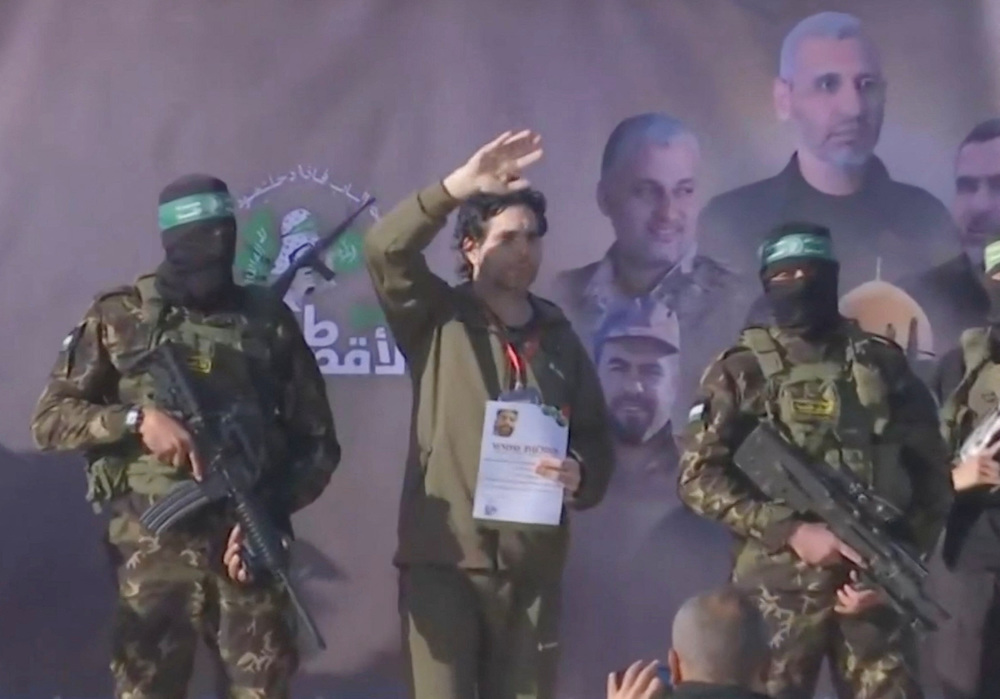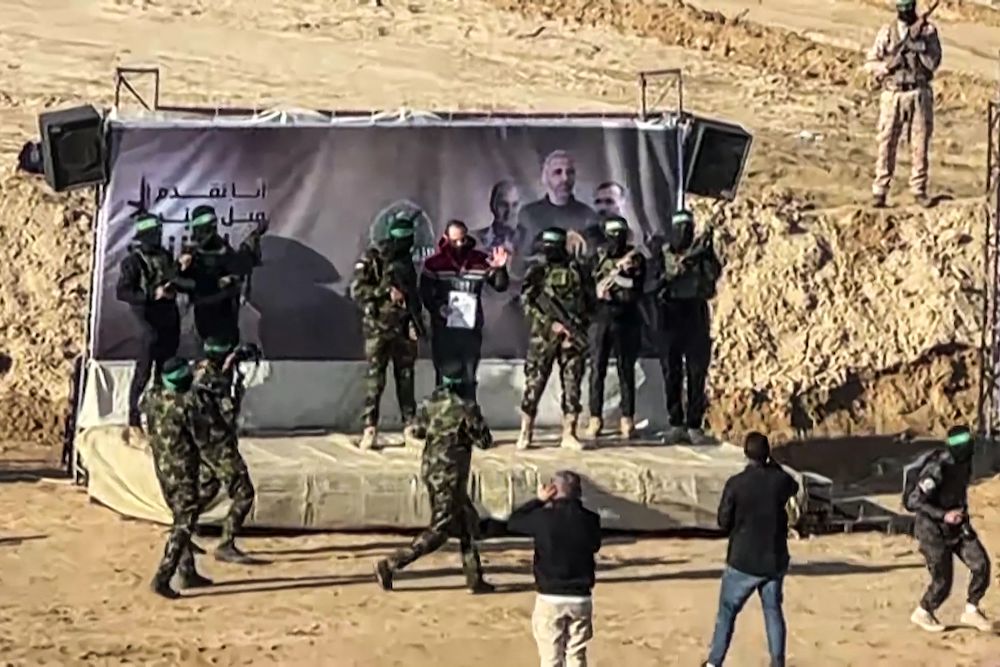BEIRUT: The Arab League on Friday warned against “the dangerous challenges that would threaten Lebanon and its stability, as well as the whole region’s stability, in case the war expanded on the southern border.”
Speaking in Beirut, Assistant Secretary-General Hossam Zaki stressed the importance of UN Resolution 1701 in containing the current escalation.
Zaki met various political figures during his visit to Lebanon, including former Prime Minister Fouad Siniora.
He said the secretary-general of the Arab League had warned since the outset of the “monstrous” war on Gaza of the risk of its expansion to other countries in the region, including Lebanon.
The international community must carry out its responsibilities and stop the war, Zaki said, adding that the only way to contain the escalation in southern Lebanon was a complete ceasefire.
Zaki’s most prominent meeting was with Mohammed Raad, the head of Hezbollah’s parliamentary bloc. It was the first meeting between the two sides since 2016, when the Arab League labeled Hezbollah a terrorist group.
At the end of his visit, Zaki said he counted on the Lebanese leaders’ “wisdom and their complete awareness of the dangerous threats surrounding Lebanon politically and on the ground.”
The Arab League, he said, was “fully ready to help the country with anything that might contribute to overcoming this difficult phase safely” and expressed the organization’s solidarity with Lebanon and its people.
He also emphasized the need to end the 19-month presidential vacuum.
Also on Friday, the EU expressed its concern over the “escalating tensions in the region, especially along the Blue Line between Lebanon and Israel.”
It called on all parties to “exercise self-restraint and take part in the diplomatic efforts to reduce the escalation.”
On Thursday, the French Ministry of Foreign Affairs expressed its “deep concern over the seriousness of the situation in Lebanon” and called on all parties to exercise maximum self-restraint.
The ministry’s deputy spokesperson, Christophe Lemoine, said hostilities in southern Lebanon had been escalating dramatically.
France, which has called for the implementation of UN Security Council Resolution 1701, “remains fully committed to preventing any risk of escalation along the Blue Line and reaching a diplomatic solution,” he said.
Some countries have warned their citizens against traveling to Lebanon due to the worsening security situation in the south of the country.
The Jordanian Ministry of Foreign Affairs advised its citizens to “avoid traveling to Lebanon during this period, except for urgent necessity.”
The border area in southern Lebanon continues to face attacks from Israel, while Hezbollah has been targeting Israeli military sites.
In the town of Kfarkela, an Israeli airstrike destroyed a three-story commercial building comprising 10 shops. Mayor Hassan Sheet told Arab News that Israel had destroyed 76 residential buildings in the town, each containing more than 10 apartments.
“One could say entire neighborhoods have been leveled to the ground. We are in a state of war,” he said.
The current level of destruction was unparalleled, outstripping even the 2006 aggression, and people had abandoned the town to nearby villages, he said.
Only civil defense personnel remain in the town to extinguish fires and remove rubble.
Israeli artillery also shelled the outskirts of the coastal town of Naqoura, while warplanes attacked the town of Chihine.
Hezbollah, meanwhile, said it had targeted “espionage equipment at the Birkat Risha site with appropriate weapons, achieving direct hits.”
Sirens sounded in Kfar Blum and Amir in Upper Galilee. Israeli Channel 12 reported that the Iron Dome intercepted a suspicious aerial target in the Galilee panhandle, triggering the alarm due to fear of falling debris.
Also on Friday, Hezbollah Secretary-General Hassan Nasrallah for the first time received his new Sunni ally in operations in southern Lebanon — the secretary-general of the Islamic Group in Lebanon, Sheikh Mohammed Takkoush.
A statement issued by the two sides said: “The latest political and security developments in Lebanon and Palestine were discussed and the importance of cooperation among resistance forces in the battle to support the valiant resistance in Gaza and its steadfast and honorable people was emphasized.”
Arab League calls for adherence to UN Resolution 1701 to contain escalation in southern Lebanon
https://arab.news/ck6t3
Arab League calls for adherence to UN Resolution 1701 to contain escalation in southern Lebanon

- Israel has ‘destroyed entire neighborhoods,’ mayor of Kfarkela says
- EU urges restraint, Jordan advises citizens to avoid Lebanon


























